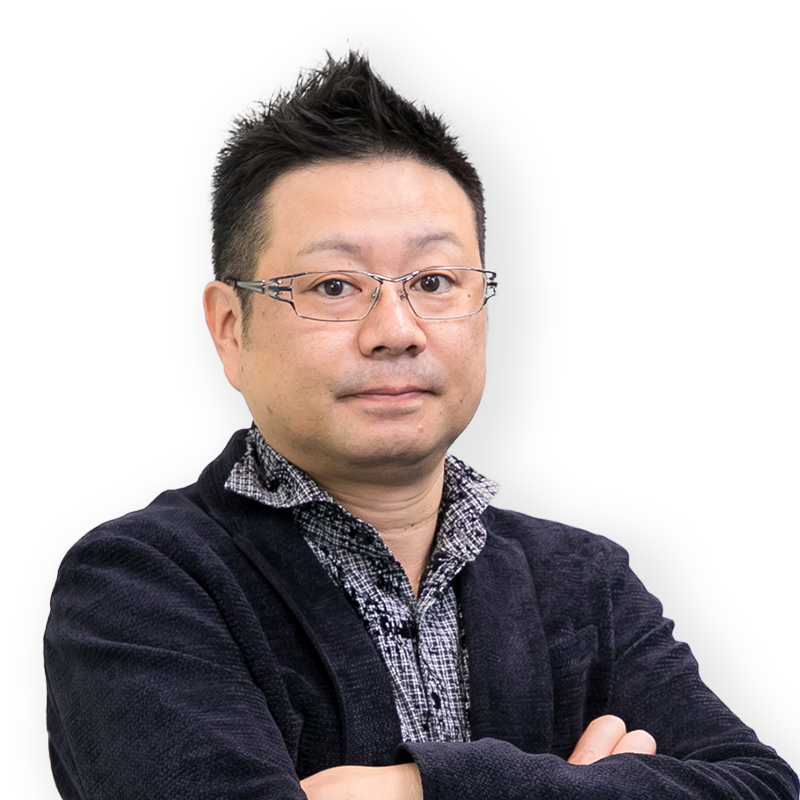Bringing games to life through music
Since joining, I have been in charge of creating music, sound effects, and voice data for the "Like a Dragon" series and implementing them into the game. This includes running playtests to check the audio in-game, balancing the volume, both directing and mastering instrumental recordings at external studios, and preparing multi-language audio support for worldwide releases.
From dramatic storylines and charming characters to the adventures and various trials you'll overcome together, the extraordinary experiences you can find in video games have appealed to me since I was a kid. Maybe it's not too much of a stretch to say that I've learned the most important life lessons from games, haha. Back then, the concept of using various means of audio to set the scene in a game's world piqued my interest. At university, I picked up a lot of composition, sound design, and programming knowledge. As SEGA wasn't hiring for fresh graduates at the time, I joined the company as a part-timer and gained experience as a sound designer working on the "Like a Dragon" series.
Our workflow starts with the music director, who sets the guidelines and stylistic themes for the sound track, and we composers produce music in line with these rules.
An extensive amount of music is needed for "Like a Dragon" games, which feature many characters and cutscenes. If a composer has an idea for a song, they flesh it out once they get the greenlight. Prior to composing, I research what kind of music fans and the production staff would like to see and communicate with the other departments involved. During the production process, the requests I receive range from outsourcing SFX production to recording instrumental performances for a critically important scene. However, that's part of our company culture: having the freedom to take the wheel and pursue what you'd like for the sake of improving quality.
Creating a thrilling journey through audio
Before I create anything, I first read up on the game's story and specifications. I also get to see the game in action. When I do, I think about how sound can add nuance to the gameplay and give the player a more captivating experience. The setting, the cast, and the characters' moves help me solidify a vision of what I need to create. In addition, I always consider how players can enjoy my work. Each "Like a Dragon" game is part of a series, so I stay faithful to past entries, while working in surprising twists or new joys for the players to discover.

Another thing that I pay particular attention to is the audio balancing. Simply layering all the audio tracks can create an information overload. If there's music, sound effects, voices playing simultaneously, you'd be lost trying to process what to focus on. Sound production requires greater knowledge of what to add or remove to achieve balance. It's about interpreting the scene in the form of audio.
This is easier said than done and I always find myself at a loss for what to do during production. However, I must say that the true joy of my job lies in hearing how fans enjoy my work.
Advancing in my career while raising a child
When I was younger, I often threw myself into my work. However, after ten years, I've raised my speed and quality when it comes to visualizing the artistic intent of a work and expressing it through sound. Now, I normally work from home while raising my one-year-old and five-year-old. Thanks to my shortened work hours, I can achieve some work-life balance and concentrate my creative output in short bursts. The Like a Dragon series music director, Chihiro Aoki, was the first person on the Sound Team to take maternity leave. Her example is a source of comfort for me, knowing you can advance your career if you show results.

Until now, my main duties have been in creating music. However, I'd love to share all of my experiences with newer employees so that we can further raise the bar for our future work in sound production. At SEGA, there are many project teams, including ones for Sonic and Puyo Puyo—this goes for the Sound Team too. You'll have many chances to interact with all kinds of professionals who'll stimulate your creativity and skills further. SEGA offers a variety of paid leave for various occasions beyond standard paid holidays. Women can pursue long-lasting careers here, as SEGA provides ample support for employees to raise their kids while following their professional aspirations. If you have a passion for the intricate work involved in sound and are committed to seeing your responsibilities through until the moment the games reach the players' hands, I encourage you to join our team.
9:00 AM Work day starts by checking my daily schedule and emails.
10:00 AM Begin with my sound production tasks and implementing them into the game.
12:30 PM Lunch break.
1:30 PM Confirm individual task progress and share information during the daily Sound Team meeting.
2:30 PM Resume work on sounds and fitting them into the game.
4:00 PM Work ends. I pick up my kids from nursery school. I watch children's TV shows with them or play games. Sometimes, I find inspiration for the songs I'm working on!

STAFF INTERVIEWS



























